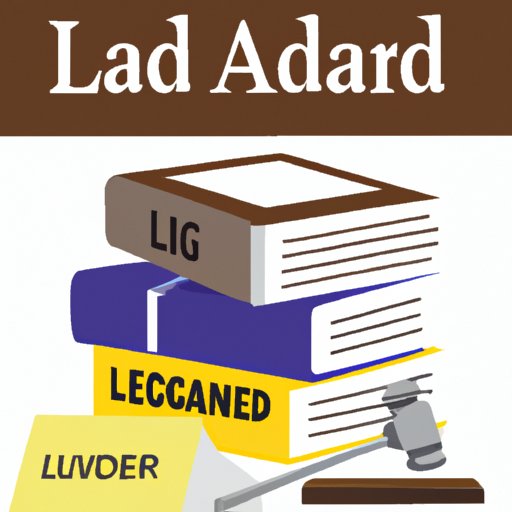I. Introduction
Legal services can be expensive, making it difficult for many individuals to obtain the assistance they need. However, there are affordable options available for those who are in need of a lawyer. This article seeks to explore several low-cost methods you can employ to get a lawyer despite your financial constraints.
II. Getting Legal Aid from Aid Organizations
Legal aid organizations provide assistance to individuals who need it the most. These organizations specialize in areas such as family law, immigration, and housing. Legal aid organizations also provide free or low-cost legal services to those who meet poverty guidelines. You can search for legal aid organizations in your area by doing an online search or contacting a legal aid hotline in your state. Make sure you understand the eligibility requirements before applying to an organization to see if you qualify for free or low-cost legal services.
III. Taking Advantage of Law School Clinics
Law school clinics are another resource for low-income individuals who are in need of a lawyer. These programs are usually associated with a law school and staffed with law students. Law clinics offer services such as legal advice, legal document preparation, and representation in court. Though law clinics may seem an unattractive option because they are staffed by law students, they provide excellent services. Law students are supervised by experienced attorneys and professors, ensuring the quality of the work they perform on your behalf.
IV. Working with a Public Defender
A public defender is a lawyer appointed by the court to represent individuals who cannot afford a private attorney. Public defenders are usually assigned to clients charged with a crime, but the requirements to qualify for a public defender vary depending on the state. Public defenders have experience with criminal law and are usually much more affordable than a private attorney. If you need a public defender, let the judge or the court know that you cannot afford an attorney, and a public defender will be assigned to represent you.
V. Utilizing Bar Association Programs
Bar association programs are another option for low-income individuals who are in need of a lawyer. Bar association programs are often offered to those who meet certain income requirements and cannot afford to hire a private attorney. Programs such as these are provided by the state bar associations and local bar associations. These programs provide a directory of attorneys who are willing to offer their services to low-income individuals at reduced rates or free of charge. To apply for a bar association program, you must contact your state or local bar association to see if you qualify.
VI. Utilizing Online Legal Resources
Online legal resources are another option for low-income individuals who need a lawyer. These resources include legal document forms, legal clinics, and online consultations with lawyers. While these online resources can be helpful, they can also be dangerous if not used properly. It is essential to verify the accuracy of the information obtained online and use caution in relying on it. Always make sure you consult a legal professional before relying on any information obtained online.
VII. Negotiating a Contingency Fee
A contingency fee is a payment arrangement in which the attorney only receives payment if the client is successful in winning their case; their fee is usually collected as a percentage of the winnings. However, contingency fee arrangements are not viable in all types of cases, and they can be expensive. There are times, however, when you may be able to work out a contingency fee arrangement with an attorney. Before agreeing to contingency fee arrangements, make sure to confirm the terms and conditions of the arrangement and the amount of the attorney’s fees if you win the case.
VIII. Arranging a Payment Plan for Legal Fees
Most lawyers require their fees to be paid upfront before they begin working on your case. However, some lawyers will allow you to make payments on their fees. Arranging a payment plan could be beneficial, as it allows you to pay for the legal fees over time. When proposing a payment plan, make sure to get the agreement in writing, so you both are informed and clear of the conditions. Also, make sure that you stay current with the payment plan to avoid additional costs or legal issues that may arise.
IX. Conclusion
There are many options for individuals who are in need of legal assistance but cannot afford an attorney. We hope this article has provided you with valuable information on how you can get a lawyer without spending a significant amount of money. Whether you take advantage of legal clinics, apply for bar association programs, utilize online resources, or any other option, remember that it is possible to get legal help despite your financial constraints. Do not hesitate to seek the help you need. Find the best option that can work for your circumstances and get on the road to justice.
(Note: Is this article not meeting your expectations? Do you have knowledge or insights to share? Unlock new opportunities and expand your reach by joining our authors team. Click Registration to join us and share your expertise with our readers.)
